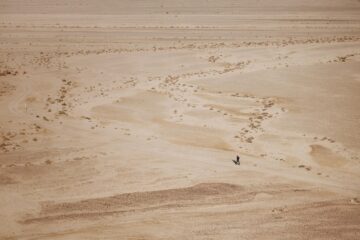Like many of you, I am watching what is occurring in Ukraine and am deeply concerned. It is no secret that I am a national security hawk and, by that, I do not mean one who wants to see us at war. America has spent many years fighting insurgency wars that frankly were poorly orchestrated, elongated, and planned. Fighting terror is one thing. Trying to turn feudal vassals into democracies is entirely another and something we should not do with our blood and treasure.
The war in Ukraine, we are told by some, is their war not ours. I genuinely appreciate that view. Yet it strikes me that unlike the war on terror, which should have been keenly focused on eliminating terrorism and not nation-building, this is very much a different matter. At stake is the world order that rejects naked aggression of one state over another. To be sure Russia and its maniacal dictator, Vladimir Putin, has put itself on a path of complete demise. They will for some time be a pariah internationally. The scene we have witnessed of the killing of men, women, and children by Russian forces is gut wrenching. It makes us angry, and as we all know, important decisions should not be taken in anger, even going to war over brutality such as this.
Yet I want to give you a bit of insight into what has influenced my thinking about war. Nothing can do that better than to experience war personally.
In my book Desert Redleg: Artillery Warfare in the First Gulf War, I encountered the results of war in a manner that has haunted me for some time. I wrote this on page 209. Ironically, it occurred 31 years ago almost to this date.
“By March 6, the division was busy destroying enemy equipment that was left behind or tagging it for return to the US as war trophies or for training purposes for future conflicts. Many units, including the DIVARTY, were also busy repatriating Kuwaiti civilians who were headed south on the “Highway of Death.” I recall making a visit with MAJ John Smith, our S-5 (civil affairs officer), who was working to acquire food and water for Kuwaiti refugees held in Iraq who were moving southward through our area of operations. As McGary and I pulled off the “Highway of Death,” which had been cleared of many destroyed Iraqi vehicles to open the way for normal traffic, we were greeted by Smith. He took me over to a group of Kuwaiti women and children, where a translator shared some of their horrific experiences. One lady had her arm in a sling. The children were eerily quiet, mostly out of exhaustion, hunger, and thirst. All were headed home to an uncertain future, made more so because many of the women had no idea where their husbands were, the fathers of their children. One of the women related how her husband had had his arm severed by the Iraqi thugs who had invaded their country. She wept. I held my own tears back even as I thought about my wife, Shelley, and my own kids. These refugees were all exhausted, but we tried as best we could to supply them with food and water as they headed home, whatever was left of it. It was desperately hard not to feel their pain and suffering. I felt my anger rise and thought what justice it would be if Saddam were summarily executed by the people he had tormented. But that would be no justice at all, and I quickly chased the thought from my head. It’s what Saddam would do, but we would need to rise above that sort of behavior if we were to restore true peace to the region.”
I will never forget what I felt as I personally witnessed the devastation and torment that war placed on the most innocent, especially the children.
The other day as I was playing with my grandson, he said to me “Granddaddy, I’m going to run to you and jump up so you can catch me!” He did immediately and I caught him when he leaped up into my arms. He loved it. I cherished it. That’s the life a child should have. Not one where the sounds of war replace the joy of play. A child should see comfort, not fear, in the eyes of a mother. There is much fear in Ukraine today. It will worsen.
What Putin is doing to Ukrainians is what Saddam Hussein did to Kuwaitis and that was a crime of the first order. Saddam was a war criminal. Putin belongs in the same dock to be judged by the world in the light of truth and justice. Who will bring that justice among us?



0 Comments